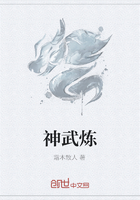"The major," he cried, "told me you were here, that you are Madame d'Aurillac." His eyes spoke his admiration. In delight he beamed upon her. "I might have known it!" he murmured. With the confidence of one who is sure he brings good news, he laughed happily. "And I," he cried, "am 'Pierrot'!"Who the devil "Pierrot" might be the spy could not guess. She knew only that she wished by a German shell "Pierrot" and his car had been blown to tiny fragments. Was it a trap, she asked herself, or was the handsome youth really some one the Countess d'Aurillac should know. But, as from his introducing himself it was evident he could not know that lady very well, Marie took courage and smiled.
"Which 'Pierrot'?" she parried.
"Pierre Thierry!" cried the youth.
To the relief of Marie he turned upon the adjutant and to him explained who Pierre Thierry might be.
"Paul d'Aurillac," he said, "is my dearest friend. When he married this charming lady I was stationed in Algiers, and but for the war I might never have met her."To Marie, with his hand on his heart in a most charming manner, he bowed. His admiration he made no effort to conceal.
"And so," he said, "I know why there is war!"The adjutant smiled indulgently, and departed on his duties, leaving them alone. The handsome eyes of Captain Thierry were raised to the violet eyes of Marie. They appraised her boldly and as boldly expressed their approval.
In burlesque the young man exclaimed indignantly: "Paul deceived me!" he cried. "He told me he had married the most beautiful woman in Laon. He has married the most beautiful woman in France!"To Marie this was not impertinence, but gallantry.
This was a language she understood, and this was the type of man, because he was the least difficult to manage, she held most in contempt.
"But about you Paul did not deceive me," she retorted. In apparent confusion her eyes refused to meet his. "He told me 'Pierrot' was a most dangerous man!"She continued hurriedly. With wifely solicitude she asked concerning Paul. She explained that for a week she had been a prisoner in the chateau, and, since the mobilization, of her husband save that he was with his regiment in Paris she had heard nothing. Captain Thierry was able to give her later news. Only the day previous, on the boulevards, he had met Count d'Aurillac.
He was at the Grand Hotel, and as Thierry was at once motoring back to Paris he would give Paul news of their meeting. He hoped he might tell him that soon his wife also would be in Paris. Marie explained that only the illness of her aunt prevented her from that same day joining her husband. Her manner became serious.
"And what other news have you?" she asked. "Here on the firing-line we know less of what is going forward than you in Paris."So Pierre Thierry told her all he knew. They were preparing despatches he was at once to carry back to the General Staff, and, for the moment, his time was his own. How could he better employ it than in talking of the war with a patriotic and charming French woman?
In consequence Marie acquired a mass of facts, gossip, and guesses. From these she mentally selected such information as, to her employers across the Aisne, would be of vital interest.
And to rid herself of Thierry and on the fourth floor seek Anfossi was now her only wish. But, in attempting this, by the return of the adjutant she was delayed. To Thierry the adjutant gave a sealed envelope.
"Thirty-one, Boulevard des Invalides," he said. With a smile he turned to Marie. "And you will accompany him!""I!" exclaimed Marie. She was sick with sudden terror.
But the tolerant smile of the adjutant reassured her.
"The count, your husband," he explained, "has learned of your detention here by the enemy, and he has besieged the General Staff to have you convoyed safely to Paris." The adjutant glanced at a field telegram he held open in his hand. "He asks," he continued, "that you be permitted to return in the car of his friend, Captain Thierry, and that on arriving you join him at the Grand Hotel."Thierry exclaimed with delight.
"But how charming!" he cried. "To-night you must both dine with me at La Rue's." He saluted his superior officer. "Some petrol, sir," he said. "And I am ready." To Marie he added: "The car will be at the steps in five minutes." He turned and left them.
The thoughts of Marie, snatching at an excuse for delay, raced madly. The danger of meeting the Count d'Aurillac, her supposed husband, did not alarm her. The Grand Hotel has many exits, and, even before they reached it, for leaving the car she could invent an excuse that the gallant Thierry would not suspect. But what now concerned her was how, before she was whisked away to Paris, she could convey to Anfossi the information she had gathered from Thierry. First, of a woman overcome with delight at being reunited with her husband she gave an excellent imitation; then she exclaimed in distress: "But my aunt, Madame Benet!" she cried. "I cannot leave her!""The Sisters of St. Francis," said the adjutant, "arrive within an hour to nurse the wounded. They will care also for your aunt."Marie concealed her chagrin. "Then I will at once prepare to go,"she said.
The adjutant handed her a slip of paper. "Your laissez-passer to Paris," he said. "You leave in five minutes, madame!"As temporary hostess of the chateau Marie was free to visit any part of it, and as she passed her door a signal from Madame Benet told her that Anfossi was on the fourth floor, that he was at work, and that the coast was clear. Softly, in the felt slippers she always wore, as she explained, in order not to disturb the wounded, she mounted the staircase. In her hand she carried the housekeeper's keys, and as an excuse it was her plan to return with an armful of linen for the arriving Sisters. But Marie never reached the top of the stairs. When her eyes rose to the level of the fourth floor she came to a sudden halt. At what she saw terror gripped her, bound her hand and foot, and turned her blood to ice.














